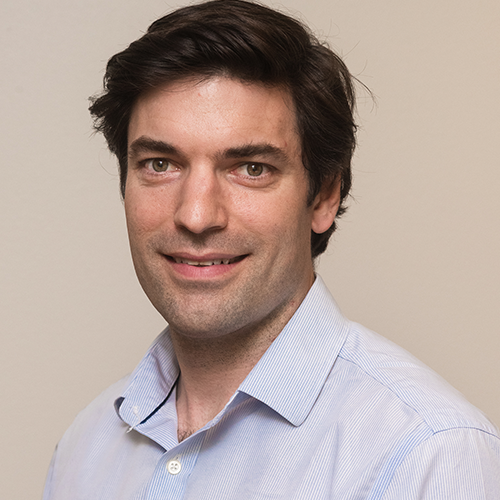
Daniel Correa is Chief Executive Officer of the Federation of American Scientists, where he leads the organization and its commitment to advancing science and technology policy. As CEO, Daniel works to build on FAS’ proud history advocating for nuclear weapons transparency, broadening the organization’s portfolio to encompass all of science policymaking and working to ensure that the best scientists and technologists are involved in designing and implementing public policy.
Prior to serving as FAS CEO, Daniel founded the Day One Project, a nonpartisan initiative focused on developing new ideas across science and technology policy. As Director of the Day One Project, Daniel built a team focused on developing and implementing new ideas in science and technology policy and supporting scientists and technologists to serve in government.
Prior to that work, Daniel led the Technology and Public Policy Project at Stanford’s Freeman Spogli Institute, an initiative to enlist leading technical and policy experts to develop actionable policy proposals across a range of cutting-edge international and domestic science and technology issues. In 2017, he established the Federal Innovation Council as an initiative of the Partnership for Public Service, and built it into a platform for senior government officials to forge a more innovative, effective, technologically-driven government.
He previously helped shape science and technology policy for the Obama Administration for four years, serving as Assistant Director for Innovation Policy at the White House Office of Science and Technology Policy. At the White House, Daniel developed the Administration’s innovation strategy and led government-wide science and technology initiatives that invested hundreds of millions of dollars in government innovation, R&D commercialization, civic technology, entrepreneurship, and more.
Prior to joining the White House, Daniel was the first employee at the Information Technology and Innovation Foundation, a Washington, D.C. think tank, where he led development of technology, entrepreneurship, and innovation policy.
He has held the position of Kauffman Fellow in Law, Economics and Entrepreneurship at Yale Law School.
He received a law degree from Yale Law School, a master’s degree in economics from Yale University, and a bachelor’s degree from Dartmouth College.
FAS CEO Daniel Correa recently spoke with Adam Marblestone and Sam Rodriques, former FAS fellows who developed the idea for FROs and advocated for their use in a 2020 policy memo.
The 80-year journey that’s led FAS to today is truly remarkable, as you’ll see, but I’m just as excited for the road ahead. I’ve never been more thrilled to have you along for the ride.
There is no better time to re-invigorate America’s innovation edge by investing in R&D to create and capture “industries of the future,” re-shoring capital and expertise, and working closely with allies to expand our capabilities while safeguarding those technologies that are critical to our security.
CHIPS is poised to ramp up demand for STEM graduates, but the nation’s education system is unprepared to produce them.
We sit on the verge of another Presidential election – an opportunity for meaningful, science-based policy innovations that can appeal to lawmakers on both sides of the aisle.
We sat down with space technology startup K2 Space to find out just how big of a leap the next generation of launch vehicles will represent.
The Biden Administration should create the Make it in America Regional Challenge (MIARC) to activate demand in underinvested regions with cluster-based techno-economic development efforts.
Our nation’s methods of supporting new ideas should evolve alongside our knowledge base.
The time is now to transform the research arm of the Education Department into an innovative, novel space to improve education outcomes.
A blueprint to restore the foundation for U.S. competitiveness by embarking on a new growth trajectory for federal research spending.